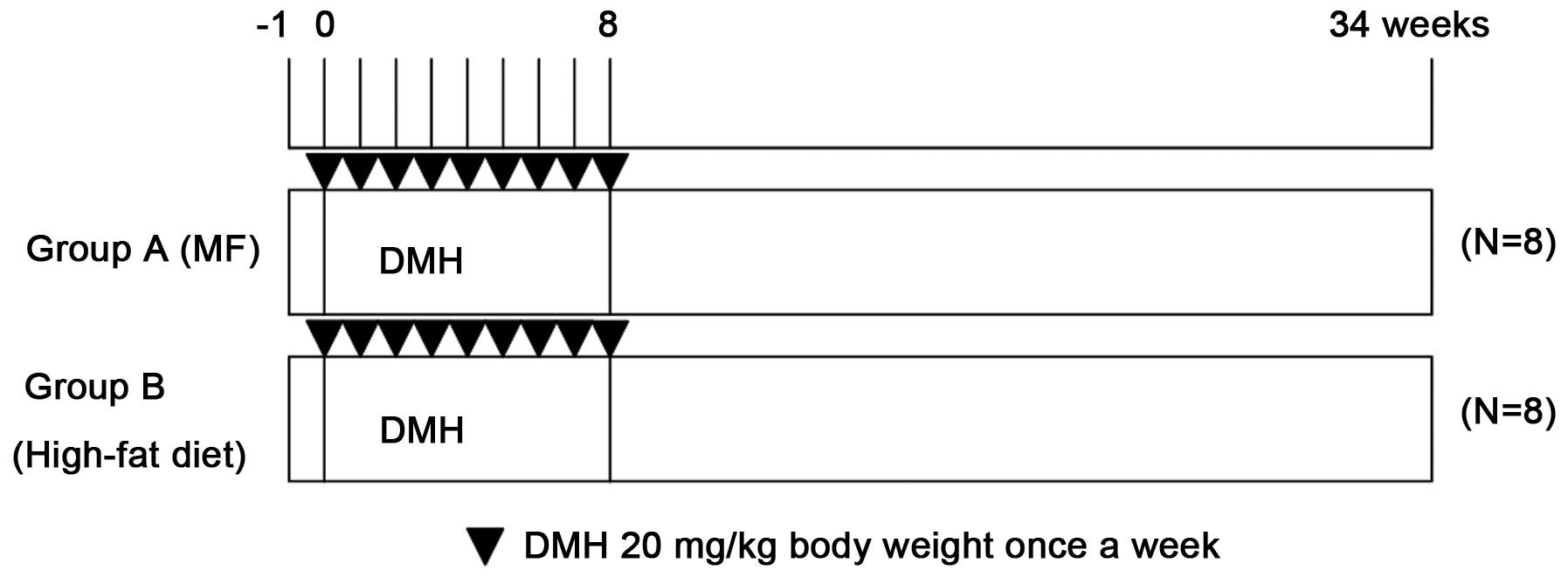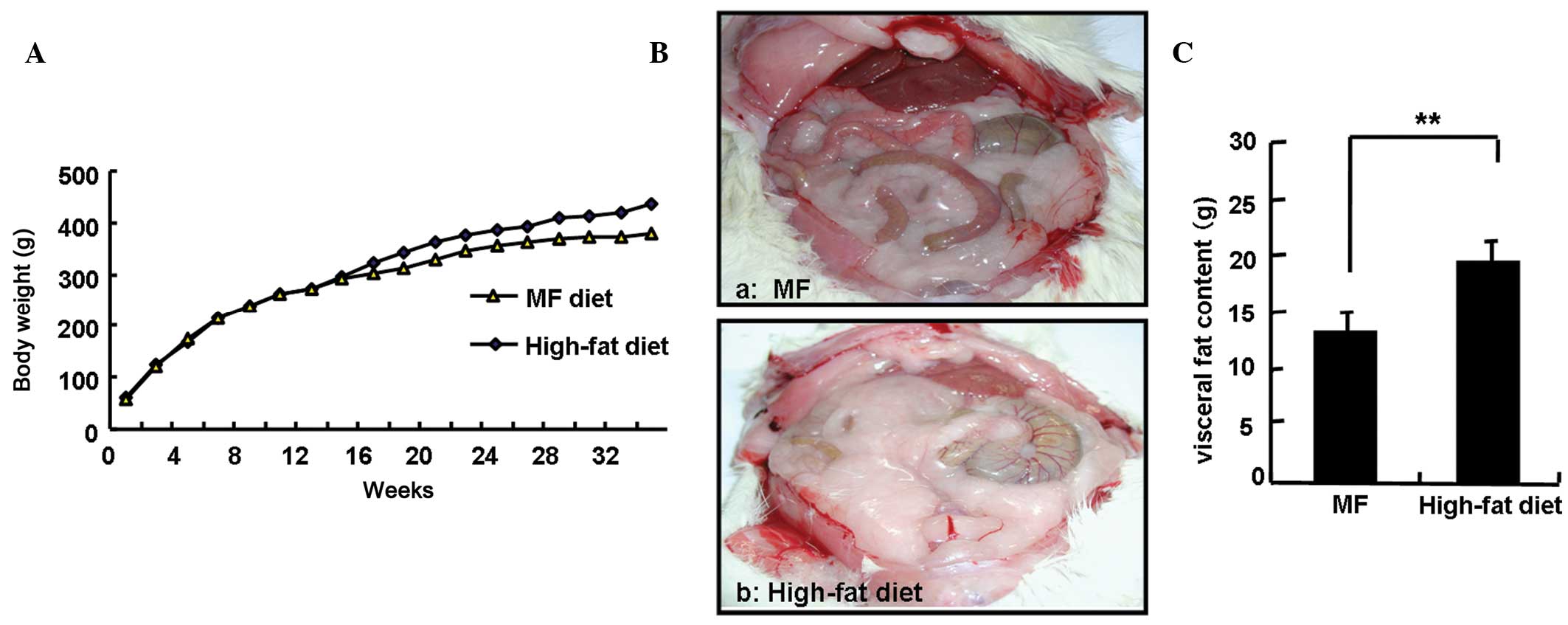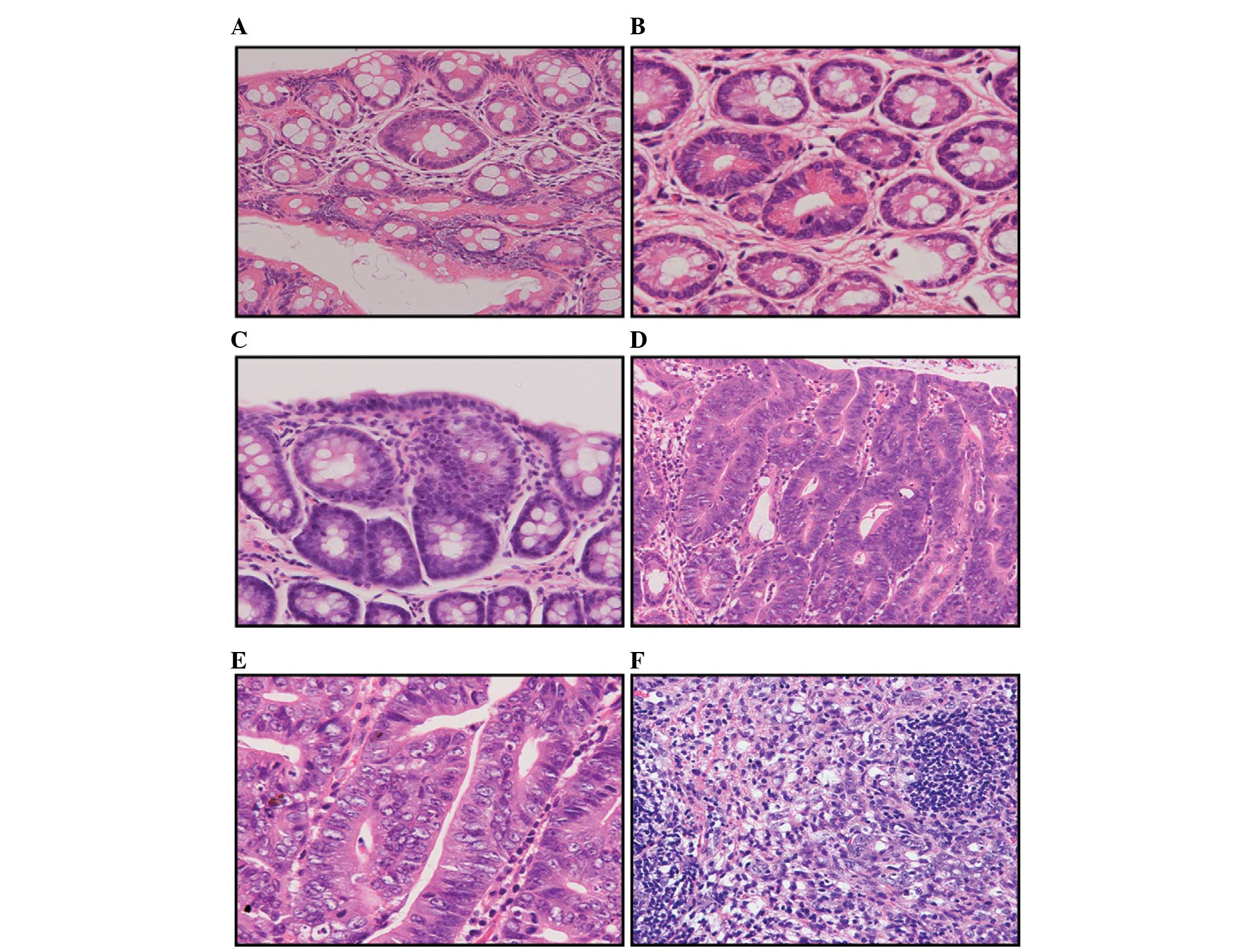|
1
|
Misra S, Ghatak S, Vyas A, et al:
Isothiocyanate analogs targeting CD44 receptor as an effective
strategy against colon cancer. Med Chem Res. 23:3836–3851. 2014.
View Article : Google Scholar : PubMed/NCBI
|
|
2
|
Ferlay J, Shin HR, Bray F, Forman D,
Mathers C and Parkin DM: Estimates of worldwide burden of cancer in
2008: GLOBOCAN 2008. Int J Cancer. 127:2893–2917. 2010. View Article : Google Scholar : PubMed/NCBI
|
|
3
|
Chung SJ, Kim YS, Yang SY, Song JH, Park
MJ, Kim JS, Jung HC and Song IS: Prevalence and risk of colorectal
adenoma in asymptomatic Koreans aged 40–49 years undergoing
screening colonoscopy. J Gastroenterol Hepatol. 25:519–525. 2010.
View Article : Google Scholar : PubMed/NCBI
|
|
4
|
Jemal A, Siegel R, Xu J and Ward E: Cancer
statistics 2010. CA Cancer J Clin. 60:277–300. 2010. View Article : Google Scholar : PubMed/NCBI
|
|
5
|
Xicola R, Gagnon M, Clark JR, et al:
Excess of proximal microsatellite-stable colorectal cancer in
African Americans from a multiethnic study. Clin Cancer Res.
20:4962–4970. 2014. View Article : Google Scholar : PubMed/NCBI
|
|
6
|
Chan AT and Giovannucci EL: Primary
prevention of colorectal cancer. Gastroenterology. 138:2029–2043.
2010. View Article : Google Scholar : PubMed/NCBI
|
|
7
|
Willett WC, Stampfer MJ, Colditz GA,
Rosner BA and Speizer FE: Relation of meat, fat, and fiber intake
to the risk of colon cancer in a prospective study among women. N
Engl J Med. 323:1664–1672. 1990. View Article : Google Scholar : PubMed/NCBI
|
|
8
|
Macdonald RS and Wagner K: Influence of
dietary phytochemicals and microbiota on colon cancer risk. J Agric
Food Chem. 60:6728–6735. 2012. View Article : Google Scholar : PubMed/NCBI
|
|
9
|
Amine EK, Baba NH, Belhadj M, et al: Diet,
nutrition and the prevention of choronic diseases. World Health
Organ Tech Rep Ser. 916:1–149. 2003.
|
|
10
|
Baskar AA, Ignacimuthu S, Paulraj GM and
Al Numair KS: Chemopreventive potential of beta-Sitosterol in
experimental colon cancer model - an in vitro and in vivo study.
BMC Complement Altern Med. 10:242010. View Article : Google Scholar : PubMed/NCBI
|
|
11
|
Inamine M, Suzui M, Morioka T, Kinjo T,
Kaneshiro T, Sugishita T, Okada T and Yoshimi N: Inhibitory effect
of dietary monoglucosylceramide
1-O-beta-glucosyl-N-2′-hydroxyarachidoyl-4,8-sphingadienine on two
different categories of colon preneoplastic lesions induced by
1,2-dimethylhydrazine in F344 rats. Cancer Sci. 96:876–881. 2005.
View Article : Google Scholar : PubMed/NCBI
|
|
12
|
Rodrigues MA, Silva LA, Salvadori DM, De
Camargo JL and Montenegro MR: Aberrant crypt foci and colon cancer:
Comparison between a short- and medium-term bioassay for colon
carcinogenesis using dimethylhydrazine in Wistar rats. Braz J Med
Biol Res. 35:351–355. 2002. View Article : Google Scholar : PubMed/NCBI
|
|
13
|
Tanaka T: Development of an
inlammation-associated colorectal cancer model and its application
for research on carcinogenesis and chemoprevention. Int J Inflamm.
2012:1–16. 2012. View Article : Google Scholar
|
|
14
|
Frezza EE, Wachtel MS and
Chiriva-Internati M: Influence of obesity on the risk of developing
colon cancer. Gut. 55:285–291. 2006. View Article : Google Scholar : PubMed/NCBI
|
|
15
|
Moore LL, Chadid S, Singer MR, Kreger BE
and Denis GV: Metabolic health reduces risk of obesity-related
cancer in framingham study adults. Cancer Epidemiol Biomarkers
Prev. 23:2057–2065. 2014. View Article : Google Scholar : PubMed/NCBI
|
|
16
|
Giovannucci E: Insulin, insulin-like
growth factors and colon cancer: A review of the evidence. J Nutr.
131 (Suppl 11):3109S–3120S. 2001.PubMed/NCBI
|
|
17
|
Otani T, Iwasaki M, Sasazuki S, et al:
Plasma C-peptide, insulin-like growth factor-I, insulin-like growth
factor binding proteins and risk of colorectal cancer in a nested
case-control study: The Japan public health center-based
prospective study. Int J Cancer. 120:2007–2012. 2007. View Article : Google Scholar : PubMed/NCBI
|
|
18
|
Powell AA, LaRue JM, Batta AK and Martinez
JD: Bile acid hydrophobicity is correlated with induction of
apoptosis and/or growth arrest in HCT116 cells. Biochem J.
356:481–486. 2001. View Article : Google Scholar : PubMed/NCBI
|
|
19
|
Hill MJ and Aries VC: Faecal steroid
composition and its relationship to cancer of the large bowel. J
Pathol. 104:129–139. 1971. View Article : Google Scholar : PubMed/NCBI
|
|
20
|
Ryser HJP: Chemical carcinogenesis. N Engl
J Med. 285:721–734. 1971. View Article : Google Scholar : PubMed/NCBI
|
|
21
|
Oshio H, Abe T, Onogawa T, et al:
Peroxisome proliferator-activated receptor alpha activates
cyclooxygenase-2 gene transcription through bile acid transport in
human colorectal cancer cell lines. J Gastroenterol. 43:538–549.
2008. View Article : Google Scholar : PubMed/NCBI
|
|
22
|
Wang D, Wang H, Shi Q, Katkuri S, Walhi W,
Desvergne B, Das SK, Dey SK and DuBois RN: Prostaglandin E(2)
promotes colorectal adenoma growth via transactivation of the
nuclear peroxisome proliferator-activated receptor delta. Cancer
Cell. 6:285–295. 2004. View Article : Google Scholar : PubMed/NCBI
|
|
23
|
Tsujii M, Kawano S, Tsuji S, et al:
Cyclooxygenase regulates angiogenesis induced by colon cancer
cells. Cell. 93:705–716. 1998. View Article : Google Scholar : PubMed/NCBI
|
|
24
|
Baek MK, Park JS, Park JH, Kim MH, Kim HD,
Bae WK, Chung IJ, Shin BA and Jung YD: Lithocholic acid upregulates
uPAR and cell invasiveness via MAPK and AP-1 signaling in colon
cancer cells. Cancer Lett. 290:123–128. 2010. View Article : Google Scholar : PubMed/NCBI
|
|
25
|
Larsson SC and Wolk A: Obesity and colon
and rectal cancer risk: A meta-analysis of prospective studies. Am
J Clin Nutr. 86:556–565. 2007.PubMed/NCBI
|
|
26
|
Gunter MJ and Leitzmann MF: Obesity and
colorectal cancer: Epidemiology, mechanisms and candidate genes. J
Nutr Biochem. 17:145–156. 2006. View Article : Google Scholar : PubMed/NCBI
|
|
27
|
Calle EE and Kaaks R: Overweight, obesity
and cancer: Epidemiological evidence and proposed mechanisms. Nat
Rev Cancer. 4:579–591. 2004. View
Article : Google Scholar : PubMed/NCBI
|
|
28
|
Birmingham JM, Busik JV, Hansen-Smith FM
and Fenton JI: Novel mechanism for obesity-induced colon cancer
progression. Carcinogenesis. 30:690–697. 2009. View Article : Google Scholar : PubMed/NCBI
|
|
29
|
Bianchini F, Kaaks R and Vainio H:
Overweight, obesity, and cancer risk. Lancet Oncol. 3:565–574.
2002. View Article : Google Scholar : PubMed/NCBI
|
|
30
|
Wei EK, Giovannucci E, Fuchs CS, Willett
WC and Mantzoros CS: Low plasma adiponectin levels and risk of
colorectal cancer in men: A prospective study. J Natl Cancer Inst.
97:1688–1694. 2005. View Article : Google Scholar : PubMed/NCBI
|
|
31
|
Saxena A, Chumanevich A, Fletcher E,
Larsen B, Lattwein K, Kaur K and Fayad R: Adiponectin deficiency:
Role in chronic inflammation induced colon cancer. Biochim Biophys
Acta. 1822:527–536. 2012. View Article : Google Scholar : PubMed/NCBI
|


















